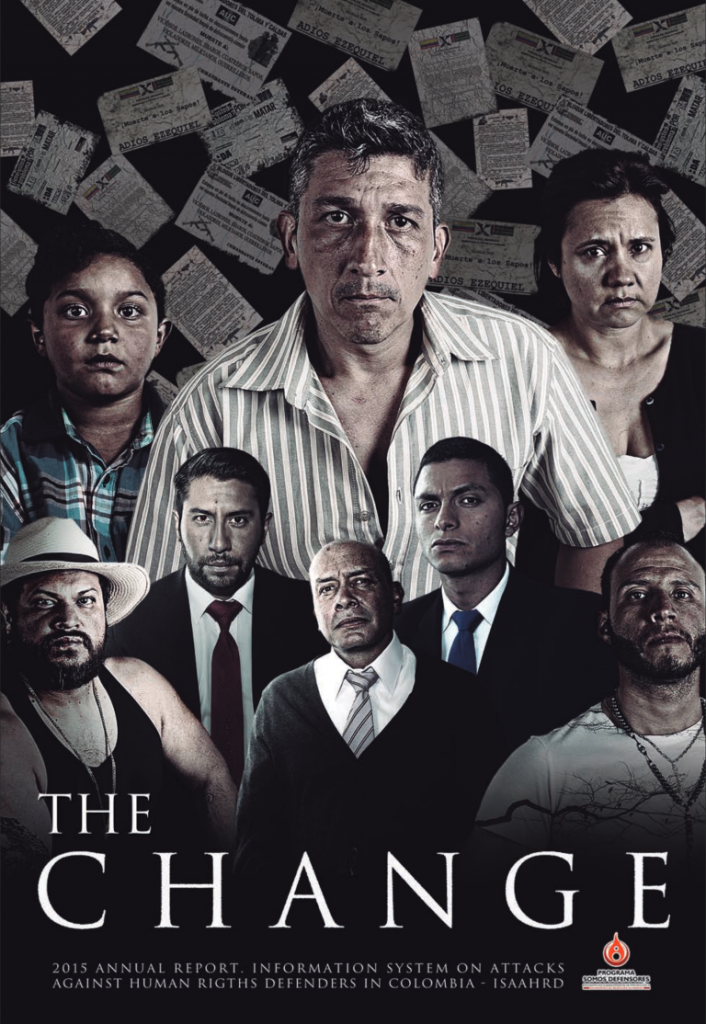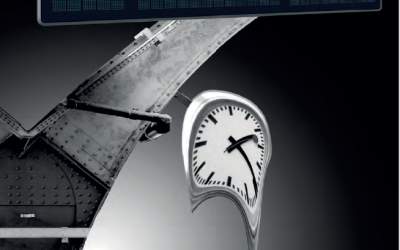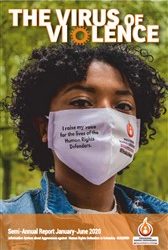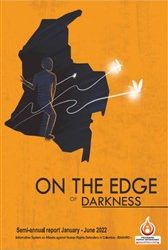
Colombia is preparing itself for the definitive cessation of armed conflict, but not without first traversing the complex path of negotiation with armed insurgencies. The context and political maturity of the different national actors seem to indicate that we have reached a turning point. The implications of all types (both tangible and intangible changes) are substantial, which of course shall not be mentioned here.
However, for the purpose of this report, it must be said that among the many fundamental changes for building a sustainable post-armed conflict is precisely that the national government generate sufficient confidence for those who are involved in future legal aspects and the emerging political movements. Moreover, their lives and physical integrity must be respected, as the case of the Patriotic Union (Union Patriótica) still haunts the collective memory. The aforementioned means a policy of political and physical protection that is both adequate and necessary. Surely the government will be committed to said security, as we believe the current governmental elite recognize the extremely high political costs paid by the country when faced with these acts.
Having said that, given the dimensions of change that the country now faces, it is necessary to underline that the current policies of protection are, on the one hand, absolutely inadequate, and on the other, unfocused for being able to respond to the transformations that the same negotiations hope to achieve. Thus, if the rumors are true about the possible agreements for protection for the transition from the armed fight to a legal political life, they would follow the same logic of physical protection as offered by the National Unit of Protection (UNP). Effectively little or nothing would change in terms of protection and they would actually be rather lucky, with UNP managing enormous economic and physical resources that make people feel safe, even if they are not. Yet furthermore this does not let one see that the increased importance for a challenging context such as one of post conflict does not lie in physical protection but in political guarantees for the exercising of public politics.
Due to the importance of the topic and its relation to the numerous debates held over many years between the human rights movement and the national government, the first part of this report shall warn about the perverse nature of continuing to construct ‘new’ policies of protection based on a worn-out model, whose results have demonstrated that this policy is far from having contributed to resolving the problem at its core, which is of course being the elimination of risk and the actors who are the cause of this risk. Today it is undeniable that many of the people under protection have a perverse dependence on their security system.
Therefore, for the sake of contributing to the improvement of the policy, on the grounds of the changes that are being warned about, and recognizing some governmental advances, this Report mentions some of the changes brought forward by State and governmental institutions in terms of prevention, protection and investigation. Nonetheless, the immense weaknesses and contradictions in a political sense are also analyzed in such a way that even though the authorities promise all their willingness to bring to a halt the attacks against human rights defenders (hereinafter HRD), the reality is that the figures are not going down – on the contrary, they are increasing, and all for the simple fact of the policy’s ineffectiveness for prevention, protection, and judicialization.
All of the abovementioned unfortunately reflects – in real figures – the homicides, threats, attempted murders, and other violations against the HRD in Colombia, despite the grandiloquent speeches given by President Santos and other high civil servants. Furthermore, this contradicts the sociopolitical context that marked 2015 as being the lowest in terms of figures of sociopolitical violence in the country in the last 50 years. Thus, in the second part of this Report, the numbers of attacks in 2015 against these rights activists will be gathered and analyzed, as well as the statistics over the last five years of the government of the President Juan Manuel Santos.
Seeking changes within the framework of the peace talks between the National Government and the insurgents is the absolute minimum that the country expects. However, such transformations must be correct, tangible, and novel for the health of Colombia, which cannot stand more years of sociopolitical violence, nor can it stand even one year more of corruption, inequality, poverty, injustice, or the extraction of natural resources. Therefore, this is also the historical opportunity to change the deep-rooted formula: physical protection versus human security but without the extraordinary risk disappearing, for which implies the guarantee of the exercising of the defense of human rights and political action versus more democracy and more freedom.
This report, which you shall find below, is considered a pedagogical exercise as it attempts to explain the unexplainable situations that the human rights defenders in Colombia confronted in 2015. Situations that resemble the premeditated stories constructed by the seventh art – cinema – which is capable of making us dream or see the worst side of reality at close or palpable distance. The title of the report is “The Change”, and for good reason; this is as a result of the constant and incessant scenario of change that the leaders and defenders face, and which appears to have an unhappy ending.
Finally we wish to show our gratitude for the financial and political support extended us by the Norwegian Embassy and the international agencies of cooperation DIAKONIA, MISEREOR, Terre des Hommes – Schweiz, Terre des Hommes – Switzerland, Oxfam Intermon and the European Union, as all of their support was fundamental in 2015 for the carrying out of this report. Equally, we wish to thank the diverse human rights organizations that shared information with the Program for this Report. And finally, we would like to thank the support of the Office of the High Commissioner of the United Nations for Human Rights in Colombia (OACNUDH for its abbreviation in Spanish) for their support in the gathering of data for this report.
Watch the trailer of the film of defenders at YouTube / Programa Somos Defensores





